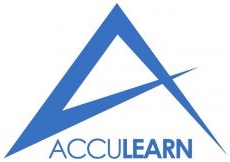Introduction
The decision to proceed with a project is often based almost exclusively on early conceptual cost estimates, and these estimates provide the basis for the cash flow projections and budget forecasts used during the project feasibility study. Unreliable cost estimates can result in significant cost overruns later in the project life when it is too late to contain them. As potential projects are considered, management not only requires costs estimates of high accuracy, they seek opportunities to reduce life-cycle costs, improve budget accuracy and optimize whole-life project value.
Determining which estimation method to use, at each stage of project development, depends on the information available at the time of preparation and its desired accuracy. Besides, decisions regarding optimising project costs without sacrificing quality or functionality are highly dependent on the use of a set of systematic and logical procedures and techniques to enhance the whole-life project value.This course will provide the delegates with the necessary skills needed for accurately estimating the total cost of their proposed projects, eliminating unnecessary costs, linking cost estimates to selected procurement methods, and enhancing the overall value of project delivery. The course offers a series of estimating techniques and processes to forecast accurately the anticipated costs of projects with a focus on budget estimates, estimates for pre-construction services, estimating contractor and sub-contractor work, estimating general conditions, pricing self-performed work, estimating negotiated contracts, and performing lump-sum and unit-price estimates.
The course also presents the value engineering methodology which emphasizes the return-on-investment aspect of decision-making in terms of life cycle costs during project planning, procurement and execution. This methodology can be used to identify alternative ideas/solutions at any project phase to produce the client’s best value requirements. Within the project management context this course significantly enhances cost estimating, budgeting, creative thinking, problem solving, and informed decision-making skills.
Objectives
- Gain knowledge of techniques used in project estimating, from the conceptual stage to the final detailed estimate
- Understand the different types of estimates used to accurately and progressively estimate project costs
- Understand the different types of contracts based on the distribution of risk between contracting parties
- Effectively apply incentive arrangements to get the best results from the contract
- Understand the fundamental concepts of Value Engineering and Analysis
- Understand how value engineering supports effective project management by providing a continuous thread of good practice throughout the project development process
- Appreciate the level and nature of the information needed to develop a project scope
- Gather and organize information and cost relevant to key elements of the project
- Learn how to capture and incorporate stakeholders’ input in the development of the project charter
- Report effectively to top management and project stakeholders in the context of proposing alternatives that improve the overall project value
- Demonstrate proficiency in applying life-cycle costing principles
- Objectively present a convincing case in support of certain project alternatives.
Content
Day One
Cost Estimating Basics
- Basic Project Management definitions
- Cost Selection Methods
- Typical project terminology & setting up for success
- Project cost management, Cost Control
- Resource & Cost Allocation
- Understanding project management inputs to cost estimation
Day Two
Pricing, Contracts and Risk
- Project management inputs to cost budgeting
- Resource Requirements
- Direct & Indirect Project Costs
- Probability and Standard Deviation Formulae
- Contract types according to risk distribution
- Fixed Price Contracts, Cost-Plus Contracts
Day Three
Developing the Project Budget & Cost Control
- Risk Identification, Analysis & Management
- Qualitative Risk Analysis
- Quantitative Risk Analysis
- Risk & Probability Matrix
- Risk Response Strategy
- Cash Flow management
Day Four
Approximate & Detailed Estimating Methods
- Material Estimating
- Civil/Construction Estimating
- Labor estimating, Detailed estimating with labor crews
- Procurement Management
- Risk distribution in contracting
- Project risk profiles
Day Five
Advanced Estimating Methods
- Building Information Modeling (BIM)
- Cost Estimating Relationships (CER)
- Computer Estimating
- Control Charts
Day Six
Framework for Applying Value Engineering in Projects
- Defining Value and Value Engineering concepts and principles
- How and when is Value Engineering applied?
- Project definition through stakeholder analysis and management
- Team player styles
- Identifying relationships between Value, Cost and Worth
- Overview of Different Value Engineering Phases
Day Seven
The Function Analysis Phase – Expressing Project Functional Needs and Constraints
- The Information Phase – steps and procedures
- Developing Value Engineering Job Plan
- Defining project constraints
- What is function analysis and Function-Cost-Worth Analysis
- Developing FAST Diagrams to identify critical project components
- Cross-Functional Project Team Approach
Day Eight
The Creative Phase – Inspiring Creativity in Your Project Team
- Creativity and Creative thinking within the project environment
- Creative thinking techniques
- Reaching consensus and leveraging the power of project team collaboration
- Project risk perception and identification
- Identifying priorities through paired comparison
- Output of the Creative Phase
Day Nine
The Evaluation Phase -Making Informed Project Decisions
- Project evaluation methods
- Performing project risk and scenario analyses
- Life-cycle costing techniques
- Incremental benefit-cost analysis for project evaluation
- Effective Decision-making in project environment
- Output of the Evaluation Phase
Day Ten
The Planning and Reporting Phases -Getting Results through Effective Communication
- Develop and assess VE proposals to optimize project value
- Action planning roles and responsibilities
- Reporting VE findings to Senior Management and project stakeholders
- Incorporating VE into the early project phases
- Integrating VE with Continuous Improvement Techniques



